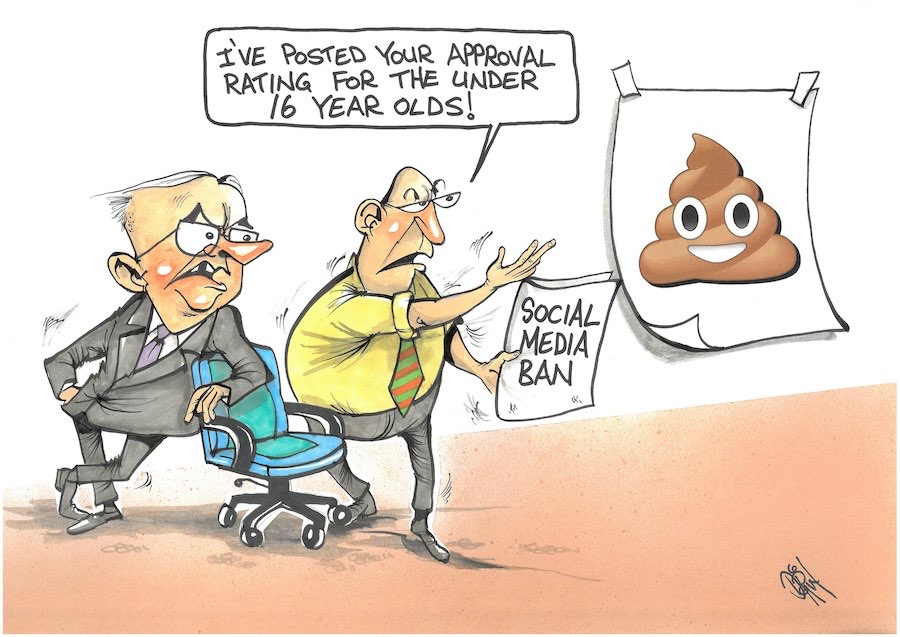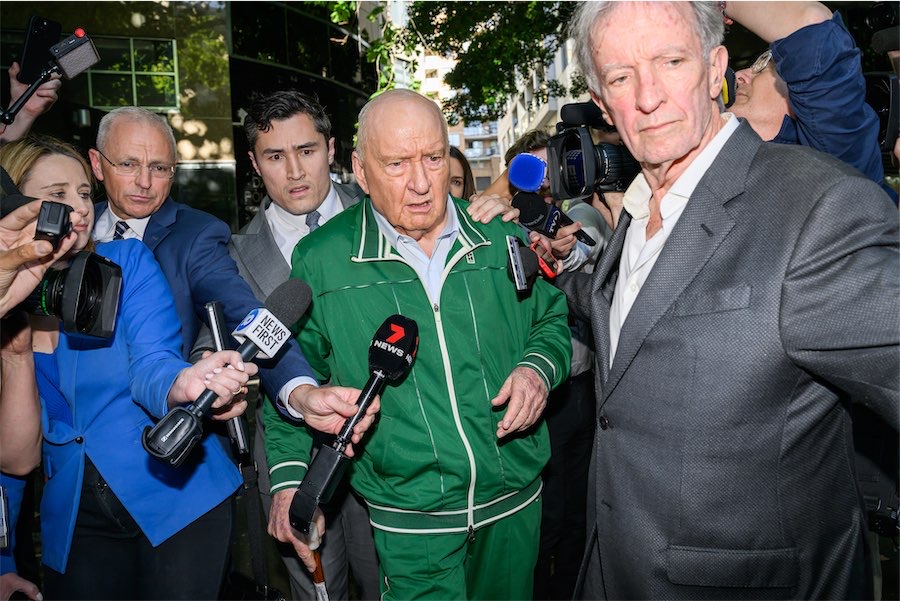Letter writer LEON ARUNDELL sees some issues with the Conservation Council’s “Make the Move” program…
THE ACT government funds the Conservation Council’s “Make the Move” program and website.
 The rationale of the program seems to be: “If you travel in a fossil-fuelled vehicle, it should be owned by somebody else”.
The rationale of the program seems to be: “If you travel in a fossil-fuelled vehicle, it should be owned by somebody else”.
The program promotes walking, cycling, e-scooters and electric and hydrogen cars. These “zero emissions” modes of travel cause no direct greenhouse emissions and have the added benefits of providing healthy exercise.
It promotes car rentals and shared cars, which cause the same emissions as driving your own equivalent car.
It promotes taxi and “rideshare” services. They cause more emissions than driving your own car, because they involve extra driving between jobs.
It doesn’t promote travelling in a car that you own.
It promotes public transport. When covid travel restrictions commenced, Transport Canberra’s emissions increased from two to five kilograms of carbon dioxide per passenger journey.
It doesn’t promote travelling by car with friends or family members. For a typical 10-kilometre journey, a car with one passenger emits only about one and a half kilograms of carbon dioxide per person.
Nor does it promote motorcycling, which also emits about one and a half kilograms of carbon dioxide per journey.
At the Conservation Council-hosted “Make the move into active commuting” seminar, I asked: “How can the government encourage people to reduce emissions by travelling as car passengers?”
Transport Canberra’s representative told the seminar that the program’s focus has been on “encouraging the uptake of other modalities”.
Leon Arundell, Downer
Not a matter of size, Clive
“CITYNEWS” claims to be “well written”. Alas, columnist Clive Williams (“Living with the ups and downs of kangaroos”, CN July 15), in one short paragraph, demonstrates that he knows next to nothing about Australia’s large, hopping marsupials.
Furthermore, assuming that he researched the topic, what were his sources?
Wallabies cannot be distinguished from kangaroos simply on size. Large male wallabies of species such as red-necked wallabies and whiptail wallabies are often larger than female kangaroos.
With regard to wallaroos, I say to Clive: “Step into the ring with a jet black, 60-kilogram male wallaroo as I have”. There is nothing intermediate about these kangaroos. The males of the common wallaroo and the antilopine wallaroo often weigh 45-50 kilograms while the third species, the black wallaroo of Arnhem Land, is much smaller – 13-22 kilograms. Shouldn’t it be a wallaby? The remainder of his article is little better.
Ian Wallis, O’Connor
Collisions not adequately addressed
HAVING lived in the “bush capital” for nearly 40 years, it astounds me that collisions with wildlife have still not adequately been addressed, ultimately leaving the cost to be borne by motorists through increased insurance premiums.
Experience from overseas clearly shows that the construction of wildlife bypasses, fencing and speed limits with flashing lights at wildlife crossing zones do work to reduce accidents.
When it comes to saving thousands in potential damages, motorists who live in and around wildlife crossing zones should consider aftermarket add-on collision warning systems. The systems work using either infrared or forward-looking radar systems that detect not only other vehicles and people, but animals ahead.
It’s worth noting that reports by insurance companies show that single-vehicle accidents including those involving wildlife are mainly due to vehicle speed. As they say, the best defence is a good offence. Drivers should stay alert, avoid hot spots and reduce speed at dawn, shortly before dusk and hours after sunset are simple and effective ways to reduce the chance of a collision.
If Canberrans want to continue to enjoy the benefits of living in the “bush capital” then the ACT government needs to seriously and urgently implement wildlife crossing structures, together with introducing driver awareness, as a means to reduce the impact of wildlife collisions and thereby saving lives (human and animal).
Robyn Soxsmith, Kambah
Irritated by DFAT appointment
I AM intensely irritated that the appointment of Kathryn Campbell to head DFAT could be publicised by our local paper without any mention of her involvement in the illegal Robodebt saga, which she helped administer, along with her denial of allegations of its links to suicide.
To be rewarded by being appointed to head of department on two separate occasions since, just shows how politicised our public service has now become.
Ric Hingee, Duffy
Suffering of Mr & Mrs Average
AS I watch, read and listen to the news on a daily basis, the only issue that seems to be addressed is COVID-19.
Sadly, what has become evident is:
- Like in all conflicts/disasters, it’s Mr & Mrs Average doing the hard work and suffering the most.
- Every time a restriction is placed on ALL of us, out come the different industry/business groups demanding special privileges for them and bugger everyone else.
- The big end of town is first in line for any government aid and last to help the broader community. Funny how many of the CEO’s of the Big End of Town collected rather large bonuses over the last year despite what has happened
- The Public Service – state, territory and federal – has gone missing. My mother-in-law is 90 years old and blind. She wanted to vote in the last ACT election. We rang up the electoral commission and were told to refer to the internet. When we asked the lady what part of my mother-in-law being blind she didn’t understand, we finally got some answers.
- Our state and territory politicians seem unable to actually solve the covid problem. They cannot consider our country’s needs as well as their state or territory’s.
- Finally, our news media treats politicians like gods and rarely goes after the Big End of Town let alone our public service mandarins.
Eventually a solution to COVID-19 will be found, but it will be despite the arrogance and contempt of the business community, despite the incompetence of the Public Service and despite the incompetence of our politicians.
The saddest part will be the suffering of Mr & Mrs Average while those mentioned above will strut around claiming they resolved the issue.
Roger Laws, Bonython
Come on folks, play the game!
AMAZING the number of visually challenged people there are in the community when it comes to using their ever-present smartphones to check in on entering business premises and tourist venues.
This despite the fact that there are usually a number of notices and hand-gel stations in evidence.
The efficacy of contact tracing has been proven. At the very least, it’s the best system we have right now.
So, come on folks, play the game! If you’re going to be out and about in Canberra, use the Check in CBR app when visiting tourist venues and businesses.
To not bother to do so could earn you a hefty fine if you are dobbed in. Apart from which, you owe it to the business proprietors who are doing their best to comply, under very difficult circumstances, with the current mandate.
Patricia Watson, Red Hill
So long as there’s a quid in it
IT seems that the ACT government will approve practically anything if there’s a quid in it. The likely “Manor-House” multiple-dwelling development on a single-dwelling-zoned (RZ1) block in Griffith, is an example.
Maybe the government is basing it on its own thin-end-of-the-wedge precedent of allowing dual (and more) occupancies in RZ1, on cleared asbestos-affected blocks, with only perfunctory planning-control restrictions; thus enabling huge restricted-trade-practice profits to itself – often at the expense of the local environment and amenity, notably the characteristically fine green swathe of interconnecting suburban backyards.
Sensibly quantitative-restricted secondary dwelling, or “granny flat” development is all that should be permitted in RZ1, maybe with separate utilities metering (currently not allowed with secondary dwellings).
Jack Kershaw, Kambah
There must be limit to consumption
IN his column (“How much gilding on the hand-out lily?”, CN July 15), Michael Moore mentions the soaring cost of houses in Canberra, which seems to be following the Sydney trend towards total unaffordability. This got me thinking about persistent growth: not just of house prices, but also the growth of population and the growth of its consumption.
Growth in demand for food is probably the most important component of that consumption, especially in a country such as Australia, where large tracts of the most productive agricultural land are being swallowed up by urban expansion.
More than 66 per cent of our population lives in the eight capital cities, and 85 per cent live within 50 kilometres of the coast – the vast majority on the east and south-east coasts.
Our burgeoning population and its demand for free-standing houses on the average 650 square-metre block is the most visible manifestation of expanding human demand.
It is now obvious that there must be a limit to the demand placed on the land resources of a finite planet that has been described as a “pale blue dot” in the infinite darkness of space.
Dr Douglas Mackenzie, Deakin
The purpose is humiliation
I WAS interested in the column “Shame: woman a day stripped naked by guards” (“Seven Days”, CN July 8) because I have been reading Cardinal George Pell’s “Prison Journal, Volume 1”, in which he describes being regularly strip searched and drug tested in prison in Victoria. Racism by the guards? I very much doubt it, but we don’t know the guards’ racial composition. A drug user? Nonsense. A shiv hidden somewhere on his body? Nonsense.
The purpose is humiliation. Where was the Melbourne-based Human Rights Legal Centre when this shameful activity was occurring under their noses?
Strip-searching women and men for humiliation is wrong in Canberra’s AMC and it is wrong in Victoria’s prisons, too.
John Farrands, via email
Bright songs not speaking in tongues
SCOTT Morrison does not “speak in the meaningless babble of tongues to some Pentecostal god” as Robert Macklin claimed in his “CityNews” column on July 1.
Mr Morrison has said he does not speak in tongues. I attended his church, the Horizon Church, on numerous occasions when I lived in the Sutherland Shire and found it favours bright songs of worship, not speaking in tongues.
A journalist researches his subjects. He doesn’t just vent his fury and print it as fact.
When he was young, my father was a reporter for “The Sydney Morning Herald”, then half owner of the “Balmain Observer”. He ensured all journalism was factual.
Rewa Bate, Coombs
Who can be trusted?
In a world of spin and confusion, there’s never been a more important time to support independent journalism in Canberra.
If you trust our work online and want to enforce the power of independent voices, I invite you to make a small contribution.
Every dollar of support is invested back into our journalism to help keep citynews.com.au strong and free.
Thank you,
Ian Meikle, editor





Leave a Reply